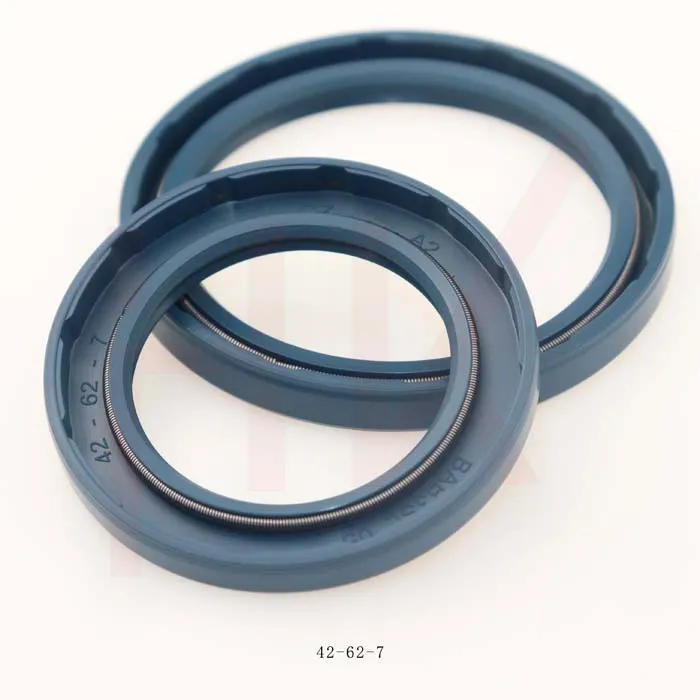ធ្នូ . 07, 2024 04:18 Back to list
felt wiper seals
Understanding Felt Wiper Seals A Comprehensive Overview
Felt wiper seals play a crucial role in various mechanical and industrial applications, providing an effective solution for preventing contamination and retaining lubricants. These seals are widely used in machinery, automotive systems, and other equipment where dynamic sealing surfaces are present. This article aims to delve into the specifics of felt wiper seals, their components, benefits, applications, and maintenance practices.
Composition and Design
Felt wiper seals are primarily made from densely packed fibers, typically wool or synthetic materials. The felt is designed to have a high degree of lubricity and excellent compressibility, allowing it to conform to various surfaces. The structure of a felt wiper seal comprises two main parts
1. The Felt Material This is the working component that comes in direct contact with the sealing surface. It has the capacity to absorb lubricants while also resisting dust, dirt, and other contaminants. 2. The Support Frame Often made from metal or durable plastic, this frame holds the felt material in place. It ensures the proper alignment of the seal and provides structural integrity.
The design of felt wiper seals can vary depending on the specific application requirements. They can be flat, cylindrical, or configured in other shapes to fit different machinery components.
Benefits of Felt Wiper Seals
1. Effective Contamination Barrier Felt wiper seals are highly effective at preventing the ingress of dirt and other contaminants into mechanical systems. This protective barrier is vital for maintaining the integrity and longevity of machinery.
2. Lubricant Retention The felt material retains lubricants, ensuring that moving parts remain adequately lubricated, which reduces friction and wear.
3. Cost-Effectiveness Compared to other sealing materials, felt wiper seals offer a cost-effective solution without compromising on performance. Their durability often translates to lower maintenance costs over time.
4. Flexibility Felt wiper seals can conform to uneven or irregular surfaces due to their compressibility, thereby providing a tight seal even in challenging conditions.
5. Diverse Material Options Depending on the intended environment, felt wiper seals can be made from a variety of materials, offering options for heat resistance, chemical resistance, and moisture control.
Applications
felt wiper seals

Felt wiper seals are utilized in a wide array of applications
- Automotive Industry In vehicles, these seals are commonly found in steering systems, suspension components, and other areas where contamination must be minimized.
- Industrial Machinery Many types of industrial equipment, such as conveyors and hydraulic systems, use felt wiper seals to protect internal components from abrasive particles.
- Office Equipment Printers and copiers often employ felt seals to prevent dust from affecting sensitive mechanisms.
- Heavy Equipment Construction and agriculture machinery utilize these seals in various hydraulic systems to enhance performance and longevity.
Maintenance Practices
To ensure optimal performance and longevity of felt wiper seals, regular maintenance is recommended. Here are some best practices
1. Inspection Periodically check seals for wear and tear. Look for signs of fraying or degradation, which could indicate that replacement is necessary.
2. Cleaning Keep the area around the seals clean to prevent debris accumulation that could compromise sealing effectiveness.
3. Lubrication Ensure that the felt material is adequately lubricated to maintain its properties and efficiency.
4. Replacement When seals show signs of significant wear or damage, prompt replacement is essential to prevent further issues in the machinery.
Conclusion
Felt wiper seals are indispensable components in many mechanical and industrial systems, providing reliable sealing solutions that enhance performance and longevity. With their ability to retain lubricants and exclude contaminants, these seals contribute significantly to the efficiency of various applications, from automotive systems to heavy machinery. Understanding their design, benefits, and maintenance is essential for anyone involved in machinery operation or maintenance, ensuring that these critical elements function effectively over time. As industries continue to evolve, felt wiper seals are likely to maintain their importance in the quest for improved performance and reliability.
-
Unlocking the Potential of Hydraulic Systems with Essential Sealing Solutions
NewsAug.06,2025
-
Unleash the Power of Your Hydraulic Systems with Our Premium Seal Kits
NewsAug.06,2025
-
Specialized Hydraulic Seal Kits for Breakers, Pistons, and Presses
NewsAug.06,2025
-
Revitalize Hydraulic Systems with Premium Repair and Seal Kits
NewsAug.06,2025
-
Fortify Your Cylinders with Premium Sealing Solutions
NewsAug.06,2025
-
Elevate Hydraulic System Reliability with Specialized Seal Kits
NewsAug.06,2025
-
TCN Oil Seal Metal Ring Reinforcement for Heavy Machinery
NewsJul.25,2025
Products categories
















